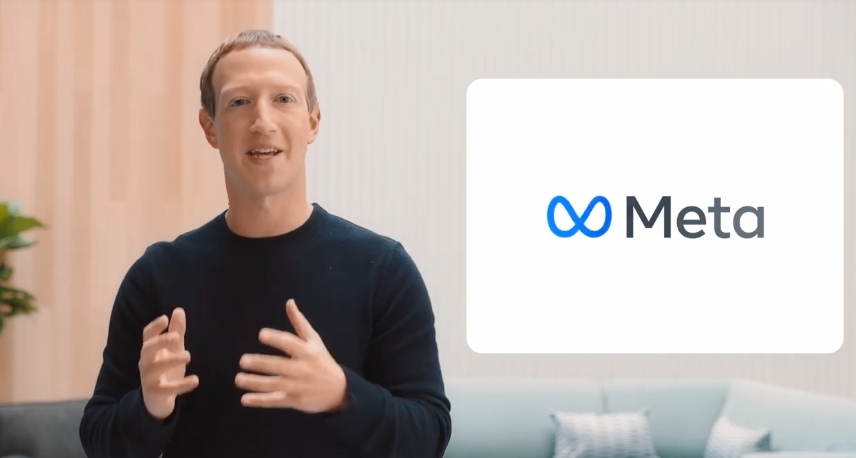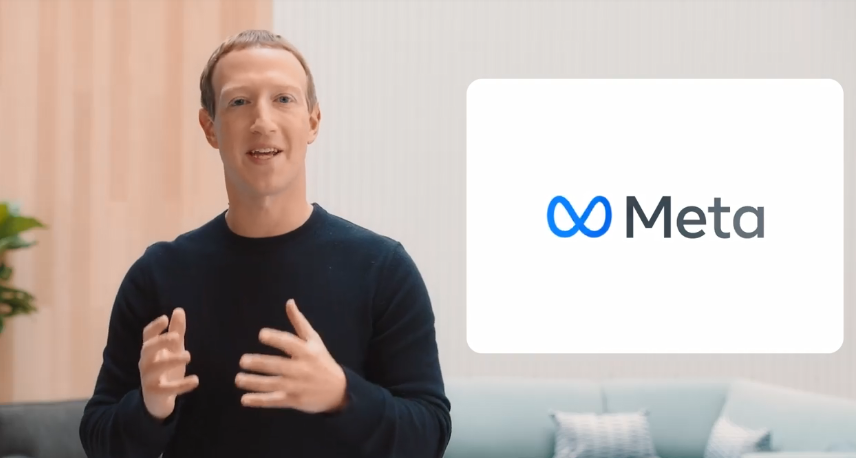
 Introducing Meta: A Social Technology Company
Introducing Meta: A Social Technology Company
Today at Connect 2021, CEO Mark Zuckerberg introduced Meta, which brings together our apps and technologies under one new company brand. Meta’s focus will be to bring the metaverse to life and help people connect, find communities and grow businesses.
The metaverse will feel like a hybrid of today’s online social experiences, sometimes expanded into three dimensions or projected into the physical world. It will let you share immersive experiences with other people even when you can’t be together — and do things together you couldn’t do in the physical world. It’s the next evolution in a long line of social technologies, and it’s ushering in a new chapter for our company. Mark shared more about this vision in a founder’s letter.
Our annual Connect conference brings together augmented and virtual reality developers, content creators, marketers and others to celebrate the industry’s momentum and growth. This year’s virtual event explored what experiences in the metaverse could feel like over the next decade — from social connection, to entertainment, gaming, fitness, work, education and commerce. We also announced new tools to help people build for the metaverse, including Presence Platform, which will enable new mixed reality experiences on Quest 2, and a $150-million investment in immersive learning to train the next generation of creators.
Our Role and Responsibility
The metaverse will not be created by one company. It will be built by creators and developers making new experiences and digital items that are interoperable and unlock a massively larger creative economy than the one constrained by today’s platforms and their policies.
Our role in this journey is to accelerate the development of the fundamental technologies, social platforms and creative tools to bring the metaverse to life, and to weave these technologies through our social media apps. We believe the metaverse can enable better social experiences than anything that exists today, and we will dedicate our energy to helping achieve its potential.
As I wrote in our original founder’s letter: “we don’t build services to make money; we make money to build better services.”
This approach has served us well. We’ve built our business to support very large and long term investments to build better services, and that’s what we plan to do here.
The last five years have been humbling for me and our company in many ways. One of the main lessons I’ve learned is that building products people love isn’t enough.
I’ve gained more appreciation that the internet’s story isn’t straightforward. Every chapter brings new voices and new ideas, but also new challenges, risks, and disruption of established interests. We’ll need to work together, from the beginning, to bring the best possible version of this future to life.
Privacy and safety need to be built into the metaverse from day one. So do open standards and interoperability. This will require not just novel technical work — like supporting crypto and NFT projects in the community — but also new forms of governance. Most of all, we need to help build ecosystems so that more people have a stake in the future and can benefit not just as consumers but as creators.
This period has also been humbling because as big of a company as we are, we’ve also learned what it’s like to build on other platforms. Living under their rules has profoundly shaped my views on the tech industry. I’ve come to believe that the lack of choice for consumers and high fees for developers are stifling innovation and holding back the internet economy.
We’ve tried to take a different approach. We want our services to be accessible to as many people as possible, which means working to make them cost less, not more. Our mobile apps are free. Our ads model is designed to provide businesses the lowest prices. Our commerce tools are available at cost or with modest fees. As a result, billions of people love our services and hundreds of millions of businesses rely on our tools.
That’s the approach we want to bring to helping to build the metaverse. We plan to sell our devices at cost or subsidized to make them available to more people. We’ll continue supporting side-loading and streaming from PCs so people have choice, rather than forcing them to use the Quest Store to find apps or reach customers. And we’ll aim to offer developer and creator services with low fees in as many cases as possible so we can maximize the overall creative economy. We’ll need to make sure we don’t lose too much money along the way though.
Our hope is that within the next decade, the metaverse will reach a billion people, host hundreds of billions of dollars of digital commerce, and support jobs for millions of creators and developers.